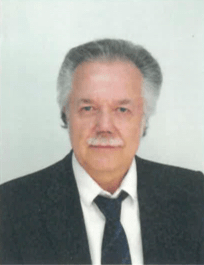October 3, 2024 - Conference: From a new approach to viral propagation to predictions in climatology

Alain OUSTALOUP
october 3, 2024 Amphi 36.02 - 11am
Professor Emeritus ENSEIRB-MATMECA - Bordeaux INP / IMS Laboratory
Biography of Alain Oustaloup - A graduate of ENSEIRB in 1973, Alain Oustaloup is currently Professor Emeritus at ENSEIRB-MATMECA - Bordeaux INP. After synthesizing complex non-integer derivation or integration, overcoming the stability-accuracy dilemma in automatic control and the mass-damping dilemma in mechanics, he invented the CRONE control and the CRONE suspension. More recently, he has come up with a new non-integer power predictor, which he applies to epidemiology and climatology. His work was rewarded with a CNRS Silver Medal in 1997 and a Grand Prix from the Académie des Sciences in 2011.
Conference summary: Recognized as "Fait marquant 2021 du CNRS", the FPM (Fractional Power Model), which generalizes linear regression, is a three-parameter model whose power alone indicates the progression, stabilization or regression of an epidemic. Thanks to its non-integer power, this model contributes to the unification of the phenomena of diffusion in physics and viral propagation in epidemiology. Its representativeness (of real data) is due to its ability to take into account an unlimited number of internal dynamics of different speeds. The model can thus represent all the internal dynamics of an epidemic, from the slowest, originating in the desolate countryside, to the fastest, originating in densely populated major cities. Its predictivity is due to its ability to take into account the whole of the past, weighted as appropriate. In fact, the model is equipped with a long-memory predictive form that expresses the fact that any predicted value is a function of all past values, values that are favorably weighted according to a forgetting factor (not unlike a subtle form of memory). The model thus has the advantage of making the best possible use of the past, all the more so as only the past can be used to predict the future - in fact, a predictive specificity likely to make this model a good predictor for decision-makers. The model's representativeness was validated using official French Ministry of Health data on the spread of COVID-19, notably time series of contaminations and hospitalizations. Its predictivity has also been validated by verified predictions in phases of containment and vaccination, and even for the vaccination itself.
Finally, the model has also been validated by verified predictions in its favor, carried out in the field of climatology through the evolution of CO2 concentration in the atmosphere and the rise in mean sea level.